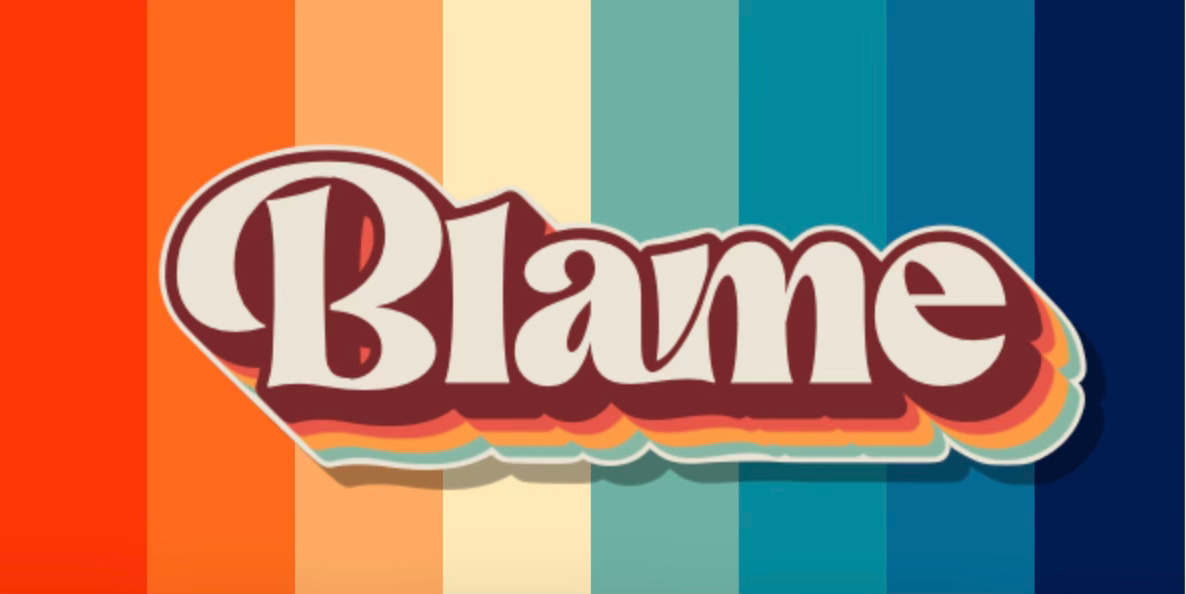What if we forgave everybody and everything?
And ourselves, too: Chapter 11 in the Book Serialisation project.
The Book Serialisation project rolls on after the regroup, refocus last week. Update: We currently sit at 28,000 words, so about two-fifths of the way in (I reckon).
Over the next few posts (making up the eleventh chapter) I’ll cover off a psychological landing pad for folk on this journey, a soft, compassionate one. I’ve been building to it after going hard with some of the explainer stuff. Now it’s time, as per last week’s post, to explore some wisdoms for “how to live now”.
If you’re new here you can start at the beginning and navigate around using this Table of Contents. The audio version will run with the second part of this chapter in the next post.
<Previous Chapter | Table of Contents | Next Chapter
BLAME
“Trying to find absolute rights and wrongs is a trick we play on ourselves to feel secure and comfortable."
- Pema Chödrön
*
“What if we forgave everybody and everything?”
- Catherine Ingram
*
Given that we’re trapped in a moloch hell-hole, given the unfathomable complexity, given the scale of the inter-looping systems that have whooped everything into a chaos beyond our ability to fathom it, given things have -necessarily - moved beyond binary ideas of right and wrong1, given we’re, enfin, really just a bunch of 4-year-olds with a bedroom that’s just been hit by a bombshell, I wonder if we could forgive each other? And ourselves? For, you know, fucking up. And not being able to unfuck our fuckupery.
It’s a question. And an invite. And a strategy.
*
Substack writer James Kunstler (who writes, appropriately, at
) argued a few years back that the simple reason why we humans do the (in hindsight) destructive things we that do was that, “it just seemed a good idea at the time.” We thought we were making life better, easier, faster, less infectious, more efficient. It’s possible we could never have known that our desire to create more of a good thing would muddle things up beyond our capacity to unmuddle it. Or that joining all those competitive games we get drawn to instinctively - like a dog to a ball - would wind us up in an inescapable race to the bottom, over and over again.Humans, I sense, just don’t have the capacity for so much foresight. We didn’t evolve to hold so much crisis and complexity in our being all at once.
And yet the neoliberal system has made us feel that we must. And that we all, as individual units, should shoulder the blame, as well as the responsibility for “fixing” everything.
*
I think back to that Mary Oliver poem:
I did think, let’s go about this slowly.
This is important. This should take
some really deep thought. We should take
small thoughtful steps.
But, bless us, we didn’t.
*
Bless us.
When I sprinkle these soft, generous words over things, I feel an oozing, broad-bosomed, grandmotherly compassion for us all.
Yes Dear, you thought you were bigger than your boots, but here we are, brought back to earth with all the other species. All of us, flawed and humbled.
I get soft eyes and smile at our adolescent (or perhaps four-year-old) exuberant arrogance.
Yes Dear, we all thought we were so very smart, but we’re really just little specks - ants perhaps - marching to the beat of a far bigger system of emergence and competition and looping truths and mutual construction and destruction, a system so big it’s Everything.
I have observed many of you are expressing similar compassionate and wildly loving sentiments for humanity as we’ve progressed further into this collapse awareness journey. It’s a double-whammy radical acceptance experience, right? It entails a humbling coming down to size (we are not as great as we convinced ourselves we were) and a full-frontal reckoning with the irreversible mess we’ve made.
"Learning about collapse – of previous civilisations, of species, of microorganisms - has helped me understand that what’s happening isn’t about some nefarious force that’s out to get us. Nor is it because humans are inherently corrupt and disappointing…it’s systemic. [Which allows me to] remember that I'm capable, and I have friends… rather than prematurely defeating myself because of the fear or shame.”
“Something I have noticed about us strange little humans is that we are unbelievably resilient, resourceful and adaptable, but usually only when it is forced on us (things like divorce, serious illness, the looming end of the world etc). It's these little quirks that make me love humanity so much. We really are strange little creatures.”
(To which I replied, “We are cute. Often. Not Always.”)




